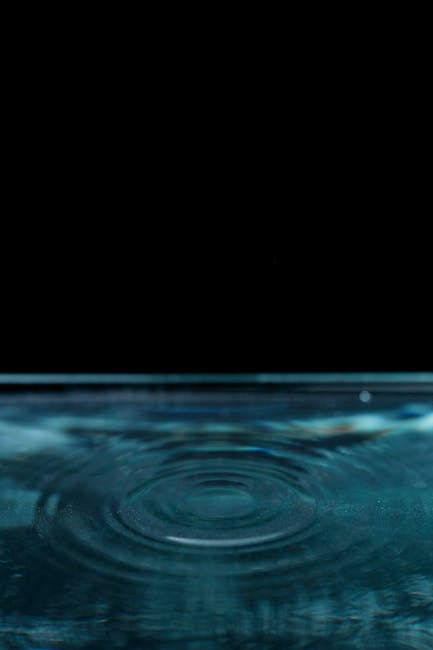In the high-stakes world of Junior College (JC) education in Singapore, every grade can feel like a deciding factor in a student’s academic journey. Physics, with its intricate concepts and rigorous demands, is often a stumbling block for many students.
It is a subject that demands not just memorisation but also a strong grasp of abstract theories, application-based questions, and an ability to think critically under exam pressure.
For this reason, it is hardly surprising that many students seek out extra help in the form of tuition or intensive revision programmes.
Among these, JC Physics Crash Courses have become increasingly popular. These programmes promise to strengthen understanding and improve exam readiness within a compressed timeframe.
But how effective are they in practice? Do they really give students the boost they need, or are they just another educational fad?
Let’s explore this phenomenon in detail.
Understanding JC Physics Crash Courses
Before assessing their effectiveness, it is important to first understand what these courses involve.
JC Physics Crash Courses are not the same as regular weekly tuition. Instead, they are short-term, intensive programmes designed to cover key portions of the syllabus in a condensed format.
These sessions are usually held during school holidays, right before major exams like the mid-years, prelims, or A-levels. The goal is not to reteach the entire syllabus from scratch, but to consolidate knowledge, close learning gaps, and sharpen exam techniques.
Most classes last anywhere between a few days and a couple of weeks, depending on the provider, and they typically focus on high-yield topics—those areas of the syllabus that students often struggle with and that examiners frequently test.
At centres like T&T Learning Hub, which is run by experienced tutors who personally conduct lessons, classes are deliberately kept small, usually around eight students.
This balance ensures that sessions are both intensive and interactive, allowing students to raise questions and clarify doubts without the feeling of being lost in a large crowd.
The Benefits of Crash Courses

Source: Unsplash
So why are crash courses such a common choice among JC students? The appeal largely comes down to the way they combine focus, efficiency, and expert guidance at a critical point in the academic calendar.
Focused Learning
Crash courses are designed with precision. Instead of trying to cover every single detail, they highlight the core areas where students tend to face the most difficulty, topics such as electromagnetic induction, quantum physics, or kinematics.
By zooming in on these tricky chapters, students can make the most of their limited revision time.
For many, this focus makes a significant difference. Regular tuition may spread itself thin across the entire syllabus, but crash courses target the exact weak spots that could make or break exam performance.
Time Efficiency
Time is always short in JC life. With multiple subjects to juggle, students often find themselves stretched thin. Crash courses offer a practical solution by condensing a large volume of content into a short period.
This efficiency is particularly valuable during exam season, when students do not have the luxury of revisiting every chapter in detail. Instead, a structured crash course gives them a guided revision path, ensuring that nothing important slips through the cracks.
Expert Guidance
One of the strongest selling points of crash courses is the expertise of the tutors. Many of these instructors, including those at centres like T&T Learning Hub, are highly familiar with the JC Physics syllabus and understand the demands of the A-level examination system.
They are not just teaching content; they are equipping students with proven strategies, how to approach open-ended questions, how to structure answers to maximise marks, and how to manage time effectively during the paper.
In many cases, the tutors’ own familiarity with exam trends provides students with insights that they might not get from self-study alone.
Potential Drawbacks
As with any educational approach, crash courses are not without their downsides.
Overwhelming Pace
The very intensity that makes crash courses effective can also be their biggest drawback. For weaker students, the fast pace may feel overwhelming, leaving them with only a surface-level understanding.
Instead of filling gaps, it could add to their stress if they struggle to keep up.
High Costs
Crash courses in Singapore are not cheap. With the added factor of being a short-term, high-demand offering, fees can be steep.
While some families view it as an investment in their child’s education, others may find the financial burden difficult to justify, especially if the outcome is uncertain.
One-Size-Fits-All Approach
Another concern is that crash courses, by nature, adopt a one-to-many model. Although centres like T&T Learning Hub keep their class sizes small to allow for interaction, the sessions still cannot match the personalised pace of one-to-one tuition.
Students who need extra time to digest concepts may find it challenging to fully benefit from the rapid coverage.
How to Choose the Right Crash Course
Given both the benefits and drawbacks, how can students and parents make the best decision? Choosing the right course is crucial. Here are some key considerations:
1. Reputation and track record: Look for centres that are known for delivering results. Online reviews, testimonials, and word-of-mouth recommendations can help separate genuine quality from mere marketing.
2. Tutor expertise: Ensure that the instructors are not just knowledgeable but also capable of breaking down complex concepts into digestible explanations. Experience in teaching JC Physics specifically is a huge plus.
3. Course structure: A well-organised crash course should come with clear objectives, structured lesson plans, and practice materials that students can continue to use for revision afterwards.
Real-Life Success Stories
The effectiveness of crash courses becomes clearer when you look at the stories of students who have benefitted from them.
Take Jane, for example, a JC2 student who consistently struggled with electromagnetism. Despite regular study, she found herself unable to apply the formulas in exam-style questions.
After joining a crash course, where the tutor broke down the concepts step by step and provided ample practice, she managed to improve her grade from a D to a B in her prelims. More importantly, she regained her confidence and no longer dreaded Physics.
Then there’s Raj, who was already performing reasonably well but wanted that extra push before his A-levels. He enrolled in a crash course that focused heavily on exam strategies and time management.
The targeted practice helped him avoid careless mistakes, and he eventually achieved an A in Physics, something he credits to the final boost he received during the crash programme.
Stories like these highlight that crash courses can be transformative, but much depends on the student’s individual goals and commitment.
Conclusion
JC Physics Crash Courses in Singapore occupy a unique space in the education landscape. They are not a substitute for long-term study or regular tuition, but when chosen wisely, they can serve as a powerful supplement.
By offering focused, time-efficient learning under the guidance of experienced tutors, they provide students with the tools and confidence needed to face one of the most demanding subjects at JC level.
However, they are not a one-size-fits-all solution. Students who thrive in fast-paced environments may benefit greatly, while those who need more gradual reinforcement might find them overwhelming. Similarly, the financial cost is an important factor to weigh.
Ultimately, the key lies in making an informed choice. Parents and students should carefully consider their academic needs, learning styles, and resources before deciding.
After all, every student’s journey is unique, and what works wonders for one may not be the right fit for another.
FAQs
Q: Are JC Physics Crash Courses suitable for all students?
A: While beneficial for many, they may not suit every student’s learning style or pace. It’s essential to assess individual needs.
Q: Can crash courses replace regular tuition?
A: Crash courses are typically supplementary and best used in conjunction with regular study and tuition.
Q: How long do these courses usually last?
A: They can vary, but most crash courses are intensive sessions lasting from a few days to a couple of weeks.
Q: Are online crash courses available?
A: Yes, many providers offer online options, which can be more flexible and accessible.

